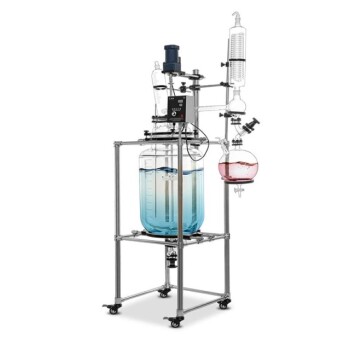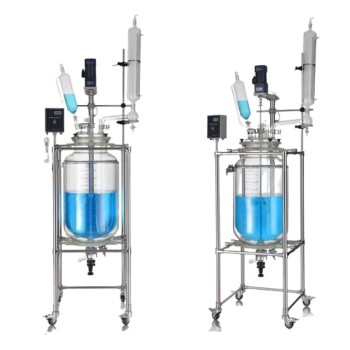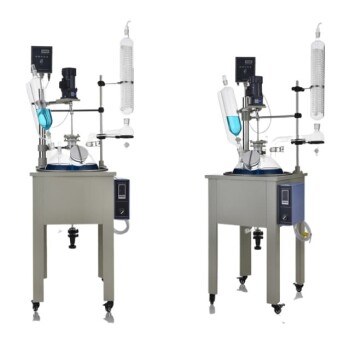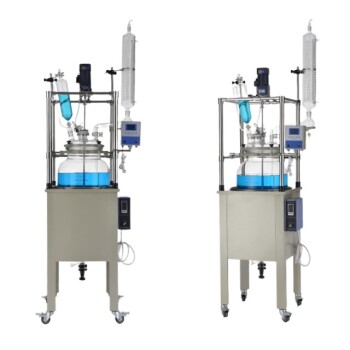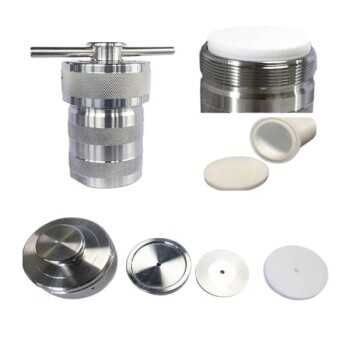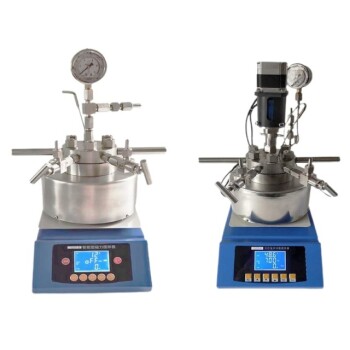A jacketed reactor is a specialized vessel designed for precise temperature control during chemical reactions, making it a critical tool in industries like pharmaceuticals, food processing, and chemical manufacturing. It features a double-walled design where the outer jacket circulates a heating or cooling medium, such as water or oil, to regulate the temperature of the reaction inside the inner vessel. This design ensures uniform heat exchange, enabling consistent and reliable results. Jacketed reactors are used in processes like distillation, crystallization, and extraction, where maintaining optimal reaction conditions is essential for improving product quality and yield.
Key Points Explained:
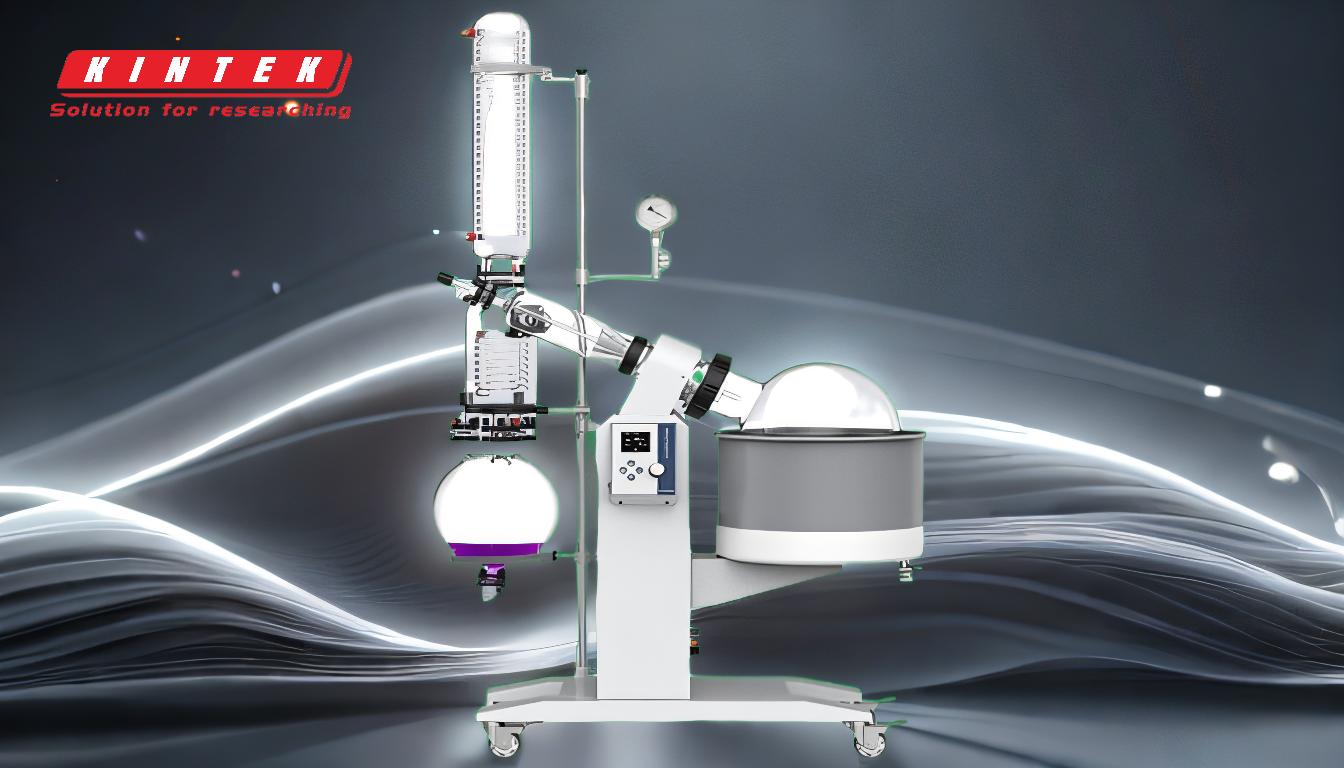
-
Purpose of a Jacketed Reactor:
- A jacketed reactor is primarily used to control the temperature of chemical reactions with precision. This is achieved through its double-walled design, where the outer jacket circulates a heating or cooling medium.
- It ensures uniform heat transfer, which is crucial for maintaining consistent reaction conditions and improving product quality.
-
How It Works:
- The reactor consists of an inner vessel where the reaction occurs and an outer jacket that surrounds it.
- The jacket is filled with a heating or cooling medium (e.g., water, oil, or steam) that is circulated using a pump.
- By regulating the temperature of the medium, the temperature of the reaction inside the vessel is controlled.
- The jacket also acts as insulation, preventing heat loss or gain and maintaining stable reaction conditions.
-
Applications:
- Pharmaceuticals: Used for processes like API (Active Pharmaceutical Ingredient) manufacturing, crystallization, and extraction, where precise temperature control is critical.
- Food Processing: Ensures consistent quality in processes like fermentation or distillation.
- Chemical Manufacturing: Used for exothermic reactions, where controlling heat is essential to prevent runaway reactions.
- Engine Oil Production: Helps manage the viscosity of highly viscous liquids by maintaining optimal temperatures.
-
Benefits:
- Enhanced Temperature Control: Ensures reactions occur at the desired temperature, leading to improved product quality and yield.
- Scalability: Allows scientists to scale up reactions from lab-scale to industrial-scale while maintaining consistency.
- Versatility: Suitable for a wide range of processes, including distillation, crystallization, and post-processing.
- Reliability: Provides consistent results by preventing temperature fluctuations and ensuring uniform heat distribution.
-
Design Features:
- The jacket is designed to facilitate uniform heat exchange between the circulating medium and the reaction vessel.
- Materials used for construction (e.g., glass, stainless steel) are chosen based on the specific requirements of the reaction, such as corrosion resistance or transparency for monitoring.
-
Industries That Rely on Jacketed Reactors:
- Pharmaceuticals: For precise control in drug synthesis and purification.
- Food and Beverage: For processes like fermentation and distillation.
- Chemicals: For managing exothermic reactions and ensuring safety.
- Engine Oil and Lubricants: For controlling viscosity and improving product performance.
-
Key Considerations for Purchasers:
- Material Compatibility: Ensure the reactor materials are compatible with the chemicals and temperatures involved in the process.
- Temperature Range: Choose a reactor that can handle the required temperature range for the application.
- Scalability: Consider whether the reactor can accommodate future scaling needs.
- Ease of Maintenance: Look for designs that allow easy cleaning and maintenance to minimize downtime.
By understanding the functionality, applications, and benefits of jacketed reactors, purchasers can make informed decisions to select the right equipment for their specific needs.
Summary Table:
| Aspect | Details |
|---|---|
| Purpose | Controls temperature of chemical reactions with precision. |
| Design | Double-walled vessel with a heating/cooling medium in the outer jacket. |
| Applications | Pharmaceuticals, food processing, chemical manufacturing, engine oil. |
| Benefits | Enhanced temperature control, scalability, versatility, and reliability. |
| Key Considerations | Material compatibility, temperature range, scalability, ease of maintenance. |
Ready to enhance your chemical processes? Contact us today to find the perfect jacketed reactor for your needs!

